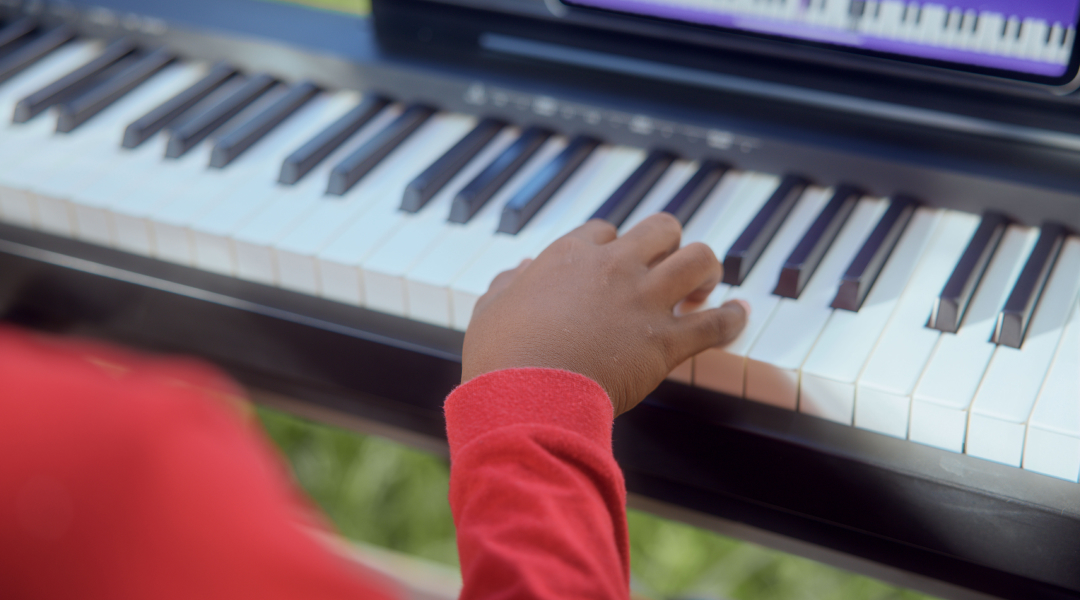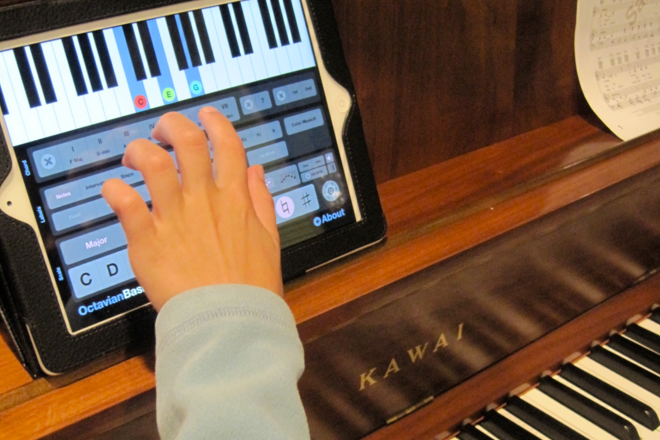Piano Humidifier: What is It and Why Do You Need One
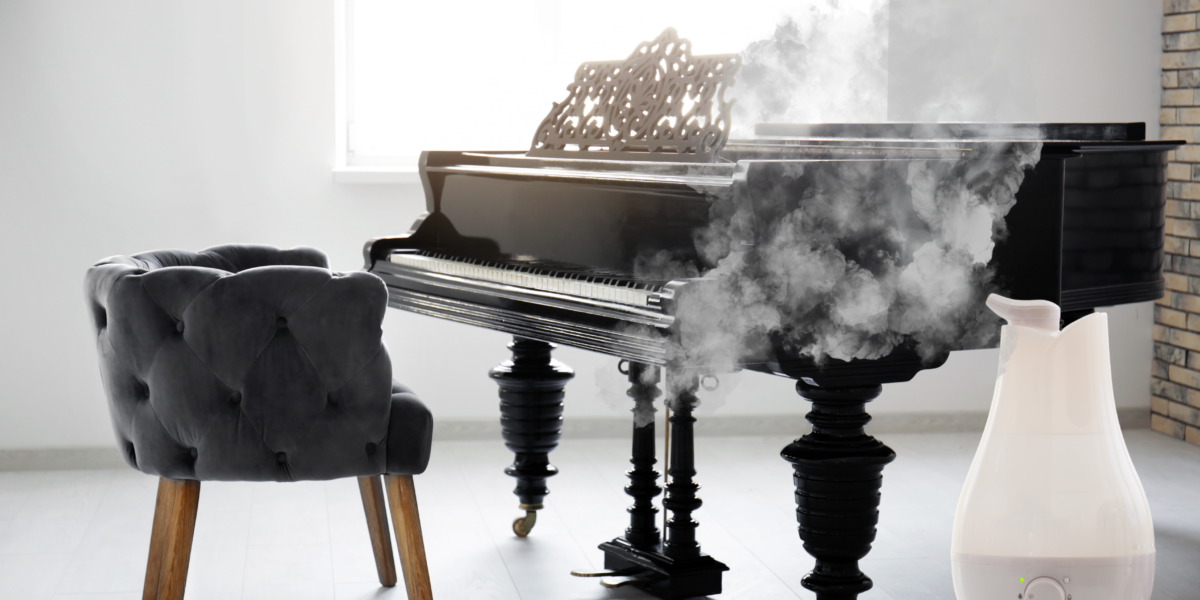
Do you need a piano humidifier? Controlling the humidity levels of your piano is critical to keeping your instrument in good condition.
Acoustic pianos require specific conditions to maintain a perfect pitch. It’s common knowledge that heat and moisture are bad for a piano. However, even subtle changes in the piano’s environment can upset its balance. This is why it is of utmost importance to keep humidity under control. You may even need to invest in a piano humidifier.
How does humidity affect pianos?
An acoustic piano has many intricate parts. Wood expands and contracts based on temperature and humidity levels. Even sturdy wooden boards can warp if exposed to inclement weather. So, just think about how significant changes in the atmosphere can affect your piano.
Too much humidity or too little humidity can negatively affect a piano. Here are a few side effects you may notice when your piano bears the brunt of extreme environmental changes:
- Keys can stick or respond slowly to your touch.
- Wood can crack, split, or warp.
- Piano Tuning doesn’t last long.
- The felt can come loose from the hammers.
- You may notice a dull or muffled sound when you play.
- Keys can rattle or wiggle when you press them down.
- Structural damage can occur.
A piano should be able to bounce back from isolated incidents. For instance, if you go out of town for a few days and cut corners on your air conditioning bill.
However, if your piano is left frequently in harsh temperatures, it can cause irreparable damage to the instrument. So, don’t allow the situation to get out of hand.
Instead, take a few preventative measures to keep your piano in tip-top condition. But before you can control the humidity, you need to know the ideal humidity level for a piano.
What is the ideal humidity for a piano?
Hot, steamy temperatures are not a piano’s best friend. However, extremely dry conditions are not helpful, either. You risk causing damage to your piano. You want to strike a balance.
So, where is that sweet spot when it comes to balancing the humidity and dryness in your home?
Most experts recommend keeping a piano under 50 percent and above 40 percent. If the number goes over 50 percent, mold and mildew can become a problem for your piano and other areas of your home.
When the level falls below 40 percent humidity, the wooden parts on a piano can become dry and crack. Hot weather and heating systems, especially underfloor or forced air systems, can cause the relative humidity level to drop below 40 percent.
Ideally, your piano room stays at 42-43 percent humidity year-round.
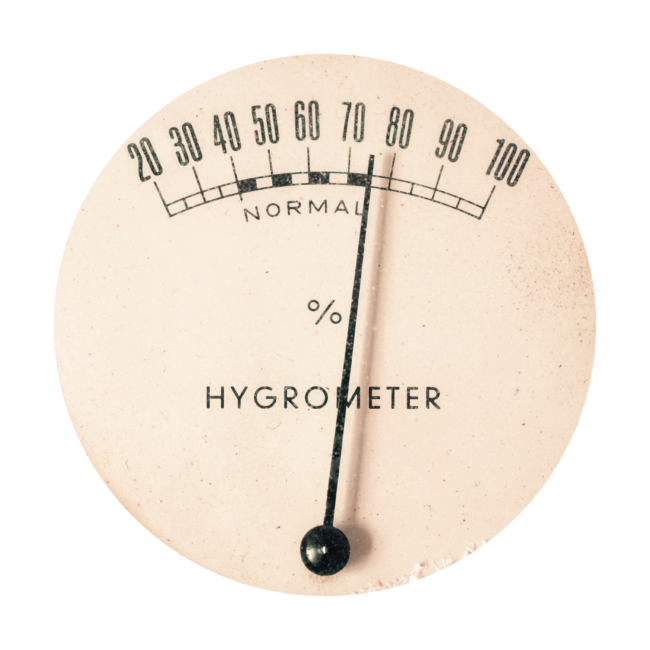
How to check relative humidity.
Now that you know what humidity level allows your piano to thrive, you need to see how the humidity in your room measures up. For this, a hygrometer can be an invaluable tool.
A hygrometer measures how much water vapor is present in the atmosphere. You can find hygrometers that you can set up on a table, hang on the wall, and some even have magnet backings.
Many hygrometers are relatively inexpensive. You can expect a cheap hygrometer to hit accuracy within or minus seven degrees. High-quality hygrometers are accurate within 1 degree.
To test the accuracy of your hygrometer, wrap it in a damp towel for half an hour to 45 minutes. Then quickly check the hygrometer’s reading. The most accurate hygrometers should read 100%.
How can you control the humidity of your piano?
Central heat systems and lack of proper air-conditioning can damage your piano. To protect your piano from humidity, dryness, and extreme temperature changes, you can bring in the right equipment to help you out.
Dehumidifiers
If you live in areas near the coast or where there is an extended rainy season, your home may be prone to high humidity levels. Basements and kitchens can also retain dampness. This makes them less than ideal environments for pianos.
A dehumidifier is a wise investment if your hygrometer gives you a high humidity reading. A piano dehumidifier system can prevent the wood in your instrument from swelling and preserve your instrument.
The three types of dehumidifiers are:
- Refrigerant dehumidifiers use a fan to draw air in over metal plates while moisture drips into a water tank. This reduces the room’s relative humidity. After the room reaches an ideal humidity level, the dehumidifier goes on standby.
- Desiccant dehumidifiers absorb and eliminate moisture through a desiccant. These systems are generally more portable than refrigerant dehumidifiers and work better in cooler temperatures.
- Whole-house dehumidifiers run efficiently and are inexpensive to run. These systems are installed in a loft or attic and push fresh air into your home, forcing damp air out.
These dehumidifiers work differently but have one goal–to remove damp air from your home.
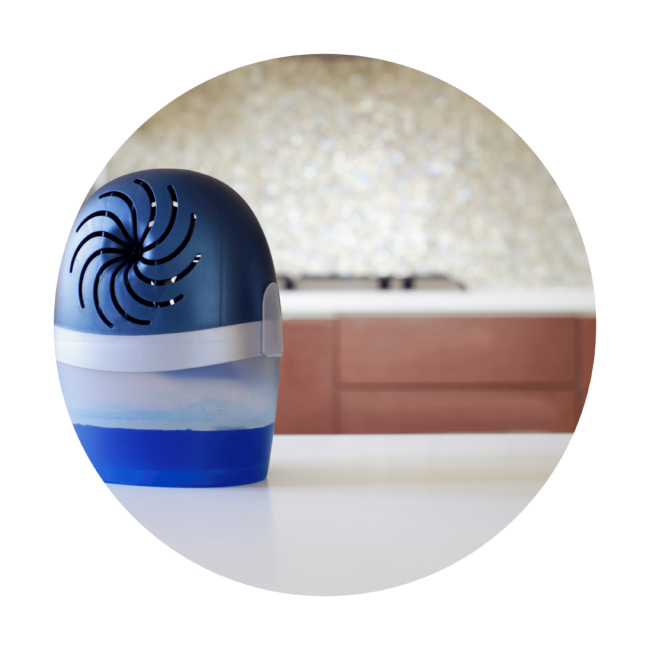
Humidifiers
For those who live in a constant heat wave, you may not have to worry about humidity. However, the excessive dry heat can also cause problems for your piano.
The wood may contract until it cracks, and you may notice loose keys when you play. In this case, you may need to add more humidity to your room. When choosing a humidifier, you have a few options:
- Stand-alone humidifiers focus on one room of your home. These affordable systems allow you to control the climate of your home.
- HVAC humidifiers run through your home’s HVAC system. These humidifiers should run when your furnace is running. This can be an efficient way to add humidity to your home.
- Dampp-Chaser Systems (or Piano Lifesaver Systems) are a permanent installation inside your piano. Many schools and churches use this system since it can be difficult to control the humidity in large rooms or assembly halls. However, installing these systems in a new piano may nullify your piano’s warranty.
Each system has its pros and cons and can fit different needs. So, find the best piano humidifier for you.
Let your piano live its best life
Keeping your home at an ideal temperature and humidity level for a piano may sound like work. However, an inexpensive hygrometer can determine if your home is in the ideal range.
Controlling the environment of your piano room is like buying insurance. You may pay more upfront to invest in a humidifier or dehumidifier. However, you can enjoy a quality instrument with great sound for years.
If you want a headstart on your piano journey, you can try out a free trial of the Simply Piano app. This app allows you to learn the basics of playing piano and is fun for kids and adults.






